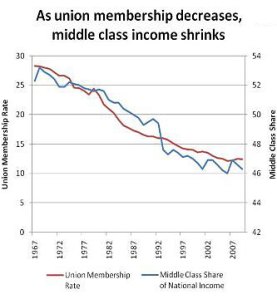 Thousands of people across the country will be taking part in a huge strike for better pay and working conditions on April 15. From fast-food to home care, airport, construction, and Walmart workers to adjunct professors and other underpaid workers, folks from every corner of the country and the globe will be joining together across industries on Tax Day, April 15th, for the Fight for $15.
Thousands of people across the country will be taking part in a huge strike for better pay and working conditions on April 15. From fast-food to home care, airport, construction, and Walmart workers to adjunct professors and other underpaid workers, folks from every corner of the country and the globe will be joining together across industries on Tax Day, April 15th, for the Fight for $15.
Will you stand with them this Wednesday? Find an action near you.
You and I know that it’s inevitable in the capitalist system for bosses to exploit workers. But it’s not just happening at the level of individual workplaces. Corporations must compete with each other or die, and that means avoiding expenses as much as possible. Low-wage workers struggle to make ends meet and, if they can navigate the deliberately complicated application process and the constant shaming that comes with public assistance, they get the support they need from taxpayers while their employers get off the hook for paying higher wages. That’s what I call corporate welfare.
All workers deserve a union to demand their fair share of the fruits of their labor, but in the meantime, let’s demonstrate that collective action can be society-wide, not just in one workplace. It’s good practice for building a movement for democratic socialism. Continue reading
Filed under: Conferences and Events, Economy, Immigrant Workers, Low wage workers, Organizing, Politics, Strikes and work action, The enemy | Tagged: Earned income tax credit, living wage, McDonalds, Supplemental Nutrition Assistance Program, Temporary Assistance for Needy Families, Wage, Walmart | Leave a comment »





